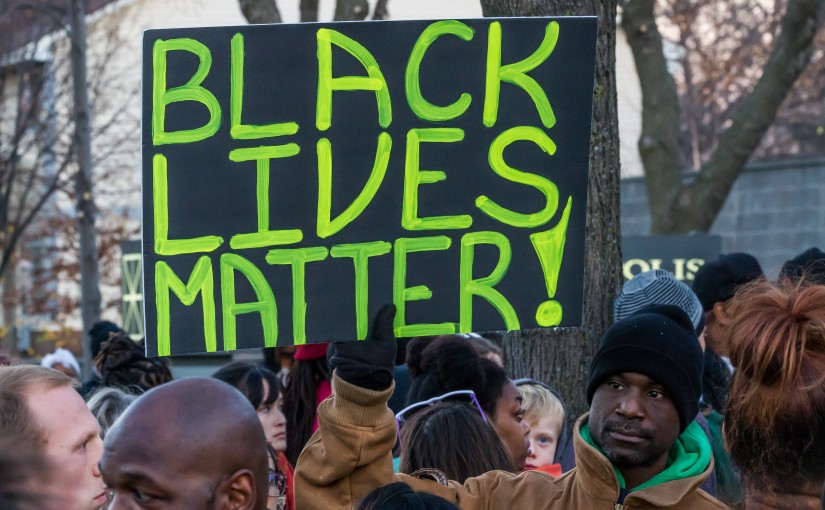Views expressed in opinion columns are the author’s own.
In the weeks since 14 students and three staff members were shot and killed at Marjory Stoneman Douglas High School in Parkland, Florida, influential celebrities such as the Clooneys, the Spielbergs and Oprah have expressed their support for and pledged donations to the March For Our Lives, which is slated to take place later this month. There have also been waves of smaller walkouts and marches across the country; last week, hundreds of students from throughout the Baltimore area organized a walkout to city hall.
While the movement that has emerged from the Parkland students’ immense trauma is incredible, it’s worth noting that it comes from a majority-white school and the movement is composed predominantly of white students. This is in no way to diminish the severity and gravity of what occurred in Parkland, but it’s important to recognize that young people of color have been advocating and organizing around the same issues for years.
[Read more: Gov. Larry Hogan proposes $125 million to improve school safety in Maryland]
It’s undeniable that race and class dictate whose deaths spark national outrage and whose do not, who is afforded the benefit of the doubt and who is not and which protest movements are deemed acceptable and which are not. A number of prominent black activists echo this sentiment, asking where this outpouring of support was for the countless people of color who have lost their lives to gun and police violence.
As Black Lives Matter co-founder Patrisse Cullors put it, “White people get to be everything. They get to be victims, they get to be heroes. And black people, unfortunately, continue to be criminalized for our moments of courage, for our moments of mourning and grieving.” She continued by asking, “Why don’t black people get to be victims?”
Within the fight against gun violence, black activists have long been ignored. They have been written off because they don’t meet a particular standard for activism, one that requires pandering to white liberals and making the case for their humanity. These unattainable standards of acceptability and respectability don’t really exist for white movements; the boundaries of action are far more policed for people of color.
Like the students from Parkland, Tamir Rice and Trayvon Martin also lost their lives to gun violence. Yet unlike the Parkland students, their innocence was constantly called into question, and no mainstream movement of comparable size arose to affirm the value of their lives. The March for Our Lives has received tremendous support in a few weeks; young black students have been organizing around similar issues for years through movements like Black Lives Matter. The national conversation of about gun violence amplifies the voices of the privileged and silences those whose lives are deemed fungible.
Baltimore teen Jonothan Gray spoke of the need to “handle gun violence in Baltimore, Chicago, Detroit, [and] different cities,” with the same attention and resources that the Parkland students are receiving, because as a Baltimore resident, “these things happen daily for us.” Gray also expressed his aversion to joining the broader movement of young people advocating stricter gun laws.
This aversion isn’t due to any deficit of empathy, but rather a frustration that our country rallies behind a movement against gun violence only when white lives are lost, and that these students are being given the space and resources to grieve and organize in a manner that has never been afforded to communities of color.
[Read more: The Parkland survivors are heroic — but they shouldn’t have to be]
Recently, a photo surfaced of a young white student from Parkland with the phrase “don’t shoot” written on her palms. Given the climate in which the photo was taken, one can infer the benevolent motivations behind it. However, the tone-deaf nature of using that particular phrase — which emerged as a rebuttal to the systemic violence against black people at the hands of police — symbolizes the shortcomings of the #NeverAgain movement.
We are a country with a violent reality that is built on our discriminatory past (and present). We express outrage and shake our heads at the horrors of mass shootings, but not at the gun violence that results in about 96 deaths daily. We demand a ban on assault weapons, but do not scrutinize the laws that allow guns to enter cities such as Baltimore, where there were 342 homicides last year. We applaud and support the activism that has emerged out of the Parkland shooting, but turn a deaf ear to the calls for change made by young people in Baltimore, Ferguson and Chicago.
If our country is serious about ending gun violence against all people, listening to the voices of the young people who suffer most frequently is the right place to start.
Sarah Riback is a sophomore English and sociology major. She can be reached at riback.sarah@gmail.com.



